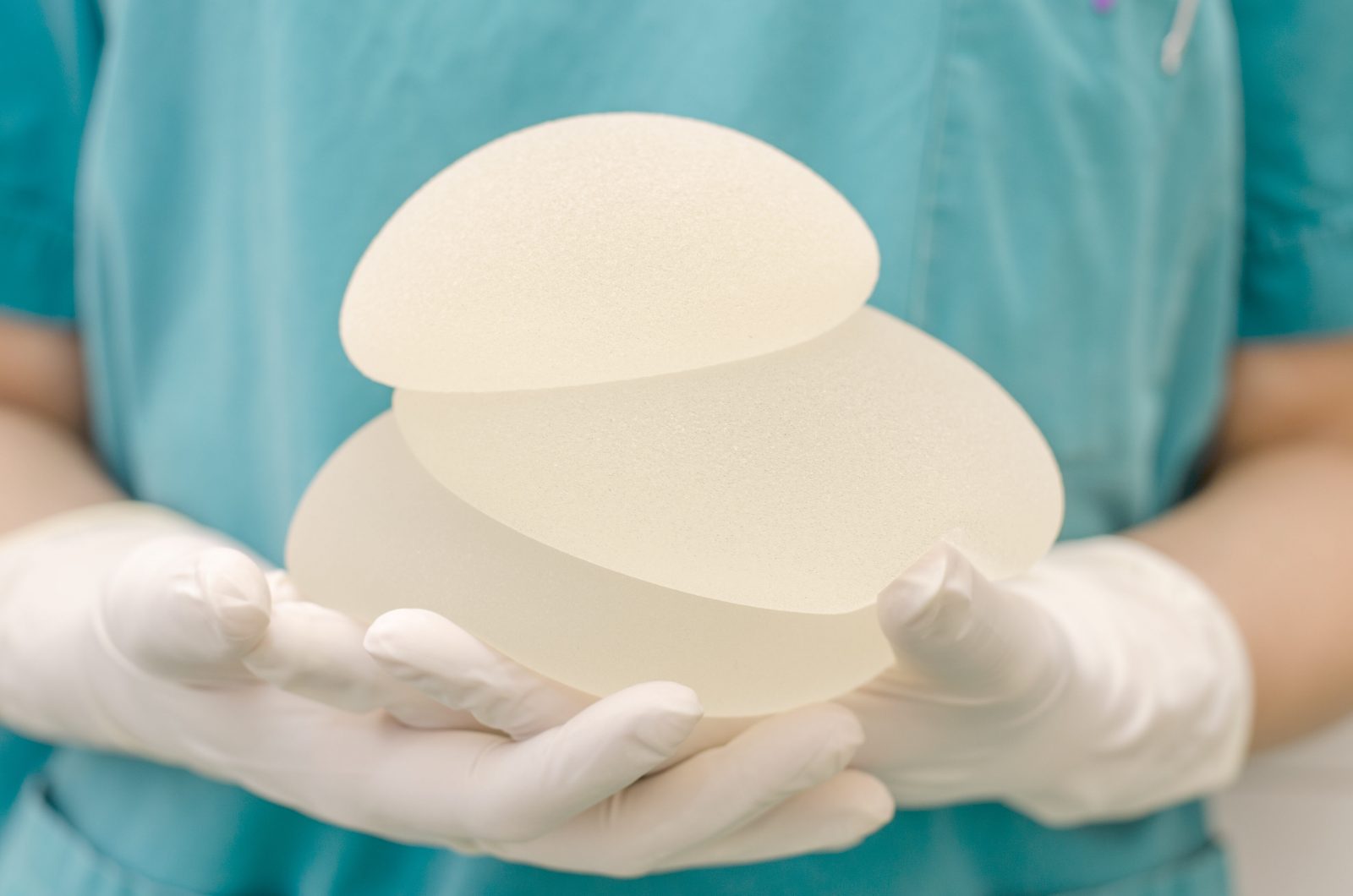Dr. Russell Babbitt is a Plastic Surgeon in private practice in Southeastern Massachusetts and is certified by The American Board of Plastic Surgery. He offers the full scope of plastic surgery of the breast, body, and face, with a special interest in complex aesthetic breast surgery and revision aesthetic breast surgery. After receiving his Medical Degree from the University of Massachusetts in 2003, he continued at UMass Medical Center for internship and residency in General Surgery and completed his fellowship in Plastic and Reconstructive Surgery there in 2010. In addition to his clinical experience, Dr. Babbitt has done research in the areas of microsurgery, human anatomy, limb reconstruction, complex models of wound healing, and abdominal wall reconstruction. He is currently an officer for the New England Society of Plastic Surgeons. Haute Beauty expert Dr. Russell Babbitt discusses the new FDA breast implant requirements.
 Photo Credit: Shutterstock
Photo Credit: Shutterstock
Recently, the United States Food and Drug Administration issued new requirements for patients interested in having breast implants. The most important thing to know is that the vast majority of these recommendations are things that careful and conscientious plastic surgeons have been doing all along, and that plastic surgeons were very much involved in the development of these recommendations. While the new regulations add more steps to the process of ensuring that patients are fully informed of the risks, aesthetic plastic surgeons welcome any developments that improve patient safety and ensure that our patients have the most current information and education to aid their decisions.
What do the new FDA requirements entail?
The following items are taken directly from the FDA press release, and each aspect is addressed individually:
The sale and distribution of breast implants will be restricted to physicians and facilities that agree to provide patients with adequate risk information so that they can make fully informed decisions.
This is a good thing! It is important that the only surgeons performing these operations are the ones with the training, background, and knowledge required to properly inform patients of all of the risks. Informed consent is a critical component of all medical procedures, and should never be compromised. Like anything else, safe tools in unskilled (or unethical) hands can still be dangerous.
New labeling for all legally marketed breast implants that includes a boxed warning:
This is a warning label in an easy-to-find “Black Box” that lists some of the major factors that patients who are considering implants should know. Many medications have this kind of labeling to ensure that certain information is prominently displayed and easy to see for patients so they can make an informed decision.
A patient decision checklist:
Again, this is a good thing. It gives the surgeon and the patient a chance to review all the important factors to consider about surgery and ensures that each and every patient receives the most up-to-date information that’s available. The decision to have breast implants should never be an “impulse buy” or something that you feel rushed into, and if a surgeon gives you a pushy vibe that is a huge red flag. This is a decision that can affect the rest of your life, so being informed and not “sold” is imperative.
Updated silicone gel-filled breast implant rupture screening recommendations:
In healthcare, we are always updating our recommendations based on the latest and best information, and this evolves over time. Silicone breast implants do not usually show external signs of rupture, so testing to find out if it is ruptured is recommended. Your surgeon should be able to explain what kind of tests can be done, and when. The current recommendation is to have Magnetic Resonance Imaging (MRI) done 5 years after your surgery, and then every 2 to 3 years after that. The important thing to know is that insurance does not typically cover MRI for implant screening, so it is an additional expense to consider.
A device description with a list of specific materials used in the device and a patient device card.
This is pretty self-explanatory, but you have a right to know what is going into your body, and this will provide that information.
Updated information on the status of breast implant manufacturer post-approval studies.
All implant manufacturers are expected to continue to conduct studies of patients who receive breast implants to evaluate the long-term impact of the surgery and the performance of the devices. This will provide patients with clear-cut information as to the findings of those studies thus far.
 Photo Credit: Shutterstock
Photo Credit: Shutterstock
What are the benefits of the stronger safety requirements?
The benefits of these stronger requirements are clear—ensuring patient safety and consistency of patient education should be our number one priority as plastic surgeons, and we should embrace anything that helps advance that goal.
Will it be a little more work? Maybe, but for plastic surgeons who have always made patient safety and education part of the consultation process, in some ways, this is actually streamlining the process that we already do. Our job is to make our patients’ lives better, and measures to improve safety are a huge part of that.
How will the new requirement affect procedures moving forward?
I don’t have a crystal ball, but I think a lot will depend on how this information is shared with patients and the public. We need to make sure that we do our best to share this information transparently and make sure there are resources like this article to combat the temptation to use these new regulations to create fear or cast this in a negative light. Again, patient safety is, and always has been, a cornerstone of aesthetic plastic surgery.





















